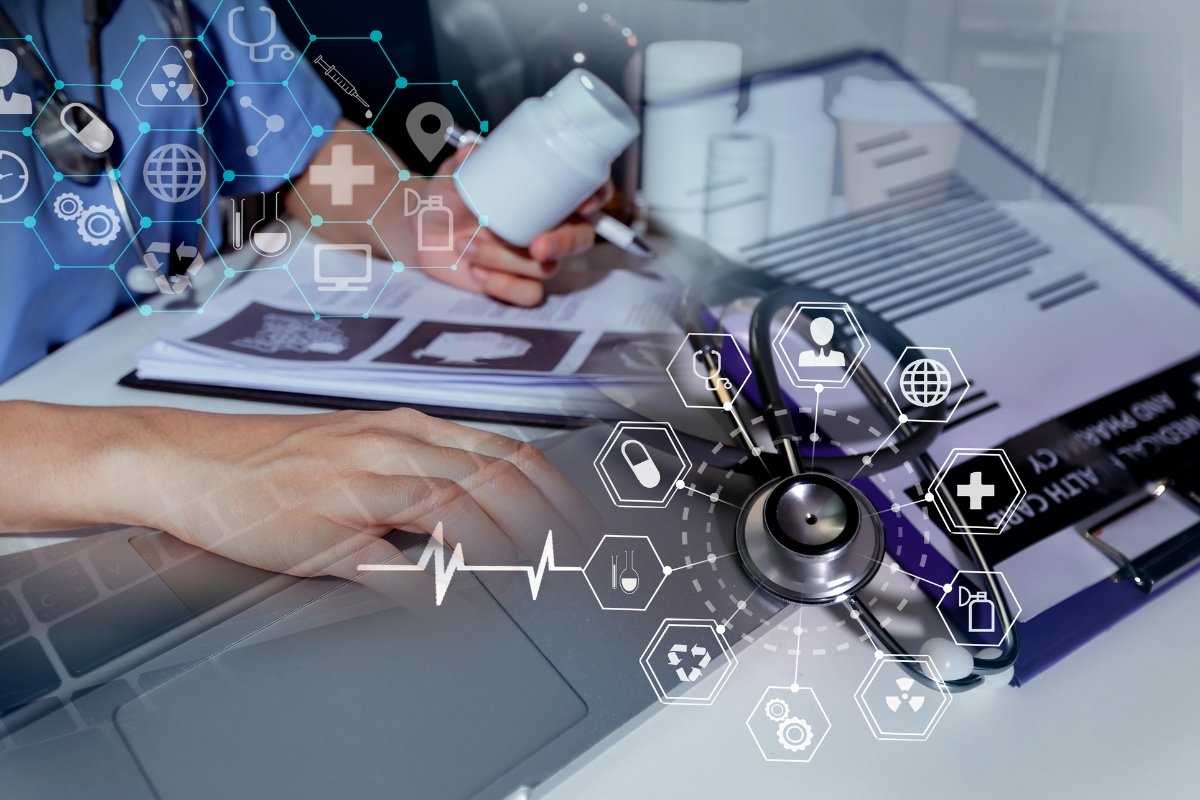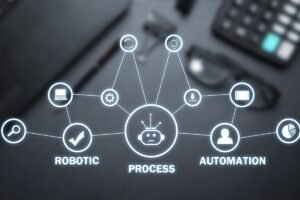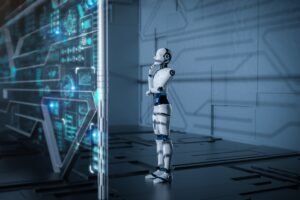AI and ML in healthcare is not just some futuristic concept it’s already here, and it’s changing the way we experience health and wellness every single day. Whether you’re going in for a routine scan, managing a chronic condition, or just asking Siri why your head hurts, artificial intelligence in healthcare is playing a role.
As someone who’s been researching this space deeply, I am here to break it down for you in plain English. No jargon. Just real talk about how AI can improve your healthcare experience starting right now.
Table of Contents
How AI is Transforming Medical Diagnostics
One of the most exciting areas where AI is crushing it? Medical diagnostics.
AI models, especially deep learning systems, are being trained using millions of medical images from CT scans and MRIs to x-rays to detect diseases earlier and more accurately than ever.
Take this for example an AI system developed to detect early-stage lung cancer was found to be more accurate than a panel of experienced radiologists and could identify the disease an average of 70 days earlier. That’s potentially lifesaving, Y’ all.
And it’s not just lungs. AI tools are also catching:
- Breast cancer
- Tuberculosis
- Retinal disorders
- Skin cancer
These tools can spot tiny anomalies that even trained eyes might miss. That’s not science fiction. It’s happening right now in hospitals across the U.S.
Read More How to Successfully Learn Machine Learning in 2025
Personalized Healthcare Plans
Say goodbye to one-size-fits-all treatments. With AI in healthcare, we’re moving toward truly personalized medicine.
AI can create tailored treatment plans based on:
- Your full medical history
- Your genetics
- Your real-time health data (from wearables like smartwatches or Fitbits)
For example, AI can recommend the most effective chemotherapy regimen for a cancer patient based on their unique DNA and the specific markers of their tumor. Imagine the impact of that kind of precision.
This shift toward personalized healthcare AI tools is giving doctors superpowers to treat you more effectively, and it’s only getting better.
Predictive Analytics
Now, let’s talk about predictive analytics in healthcare. This is where AI shines not just in treating illness but in predicting and preventing it.
Hospitals are using AI-powered early warning systems that monitor patient vitals in real time. One case showed a machine flagging a patient’s signs of sepsis hours before human doctors noticed anything.
AI also helped during the COVID-19 pandemic, analyzing massive data to predict where outbreaks might hit next, allowing hospitals to prepare by allocating:
- Beds
- Ventilators
- Medical staff
It’s kind of like a weather forecast for health emergencies, and it’s making a huge difference.
AI-Powered Surgery
Robotic-assisted surgery is not new, but AI is taking it to the next level.
Tools like the da Vinci surgical system are being enhanced with AI to deliver:
- More precise movements
- Smaller incisions
- Faster recovery times
- Less trauma and scarring
But it’s not just about the robot’s arm. AI is analyzing past surgery data to improve techniques and give real-time feedback during procedures. That’s wild, right?
Virtual Health Assistants
Let’s be real not everyone has easy access to doctors, especially in rural or underserved areas. That’s where AI health chatbots like Buoy or Ada come in.
These tools help people:
- Understand symptoms
- Decide whether to go to a clinic
- Get 24/7 support
And it doesn’t stop there. Apps like Woebot are offering AI-driven therapy for mental health support. They’re not meant to replace therapists, but for folks who might be hesitant to seek help, they’re a gentle first step.
Read More Understanding Artificial Intelligence (AI), Machine Learning (ML), and Deep Learning (DL) in 2025
Why AI Won’t Replace Your Doctor
Let’s get one thing straight AI is a partner, not a replacement.
Doctors bring empathy, intuition, and judgment that machines just can’t match. What AI does is take care of the repetitive, data-heavy stuff so doctors can focus more on you.
Think of AI in healthcare as a super-smart assistant working behind the scenes, constantly learning, improving, and helping your care team make better decisions.
FAQs About AI and ML in Healthcare
Q. Is AI in healthcare safe?
Ans. Yes, most AI tools are tested and trained extensively before deployment. However, like all tech, they must be continuously monitored and improved.
Q. Will AI replace doctors?
Ans. No. AI is here to support healthcare professionals, not replace them. It handles data-heavy tasks, giving your doctor more time for human connection.
Q. Can AI really diagnose diseases better than humans?
Ans. In many cases, yes. For example, AI has outperformed radiologists in early detection of some cancers. But it works best as part of a care team not solo.
Q. How does AI know which treatment is best for me?
Ans. AI uses predictive models based on your history, genetic data, and real-time health info to suggest options. But your doctor still makes the final call.
Q. Is my data safe with AI tools?
Ans. That depends on the platform. Always check that your provider follows HIPAA compliance and uses encryption.
Conclusion
So, what does all this mean for you?
It means faster diagnoses. Better treatment options. More accessible care. And smarter prevention.
AI in healthcare is already transforming the way we approach medicine, and it’s only getting smarter. If you’re someone who values early detection, personalized care, and proactive health support you’re going to love where this is headed.





Pingback: The Power of Transfer Learning In 2025